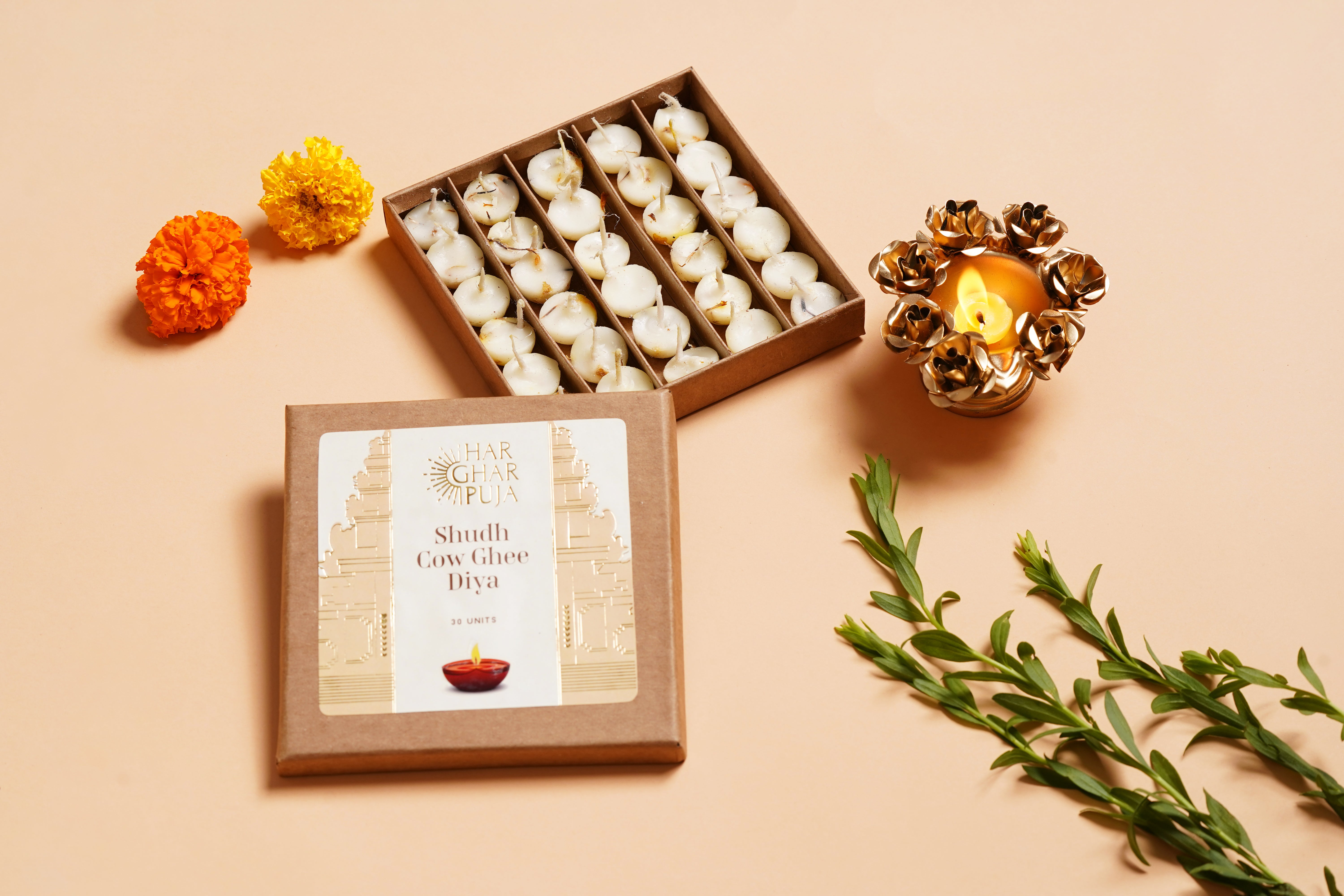Shri Mahishasura Mardini Stotram was composed by the great sage Adi Shankaracharya around 810 AD. Shri Mahishasura Mardini Stotram is based on Devi Mahatmya in which the Goddess takes the form of Durga, Lakshmi and Saraswati to kill Madhu and Kaitabha, Mahishasura and the demons Sumbha and Nishumbha.
Let us read it and also know its meaning.
Mahishasur Mardini Stotram with Meaning

ayi girinandini nanditamedini viśva-vinodini nandanute
girivara vindhya-śiroadhi-nivāsini viśhṇu-vilāsini jiśhṇunute |
bhagavati he śitikaṇṭha-kuṭumbiṇi bhūrikuṭumbiṇi bhūrikṛte
jaya jaya he mahiśhāsura-mardini ramyakapardini śailasute ‖ 1 ‖
O Giriputri (daughter of the mountain), the one who makes the earth happy, the one who keeps the world happy, saluted by Nandi, the one who resides on the highest peak of the Vindhya mountain range, the one who gives joy to Vishnu, saluted by Indradev, the housewife of Neelkanth Mahadev, the one with a large family, the goddess who creates in abundance, O beautiful Jatadhari Girija, the one who killed Mahishasura! Victory to you, victory to you.
suravara-harśhiṇi durdhara-dharśhiṇi durmukha-marśhiṇi harśharate
tribhuvana-pośhiṇi śaṅkara-tośhiṇi kalmaśha-mośhiṇi ghośharate |
danuja-nirośhiṇi ditisuta-rośhiṇi durmada-śośhiṇi sindhusute
jaya jaya he mahiśhāsura-mardini ramyakapardini śailasute ‖ 2 ‖
O you who showers blessings on the gods, kills the demons named Durmukh and Durdhar, is always cheerful, who nurtures the three worlds, keeps Lord Shiva happy, removes shortcomings and faults, O you who get pleased by the sound of (various types of weapons), who calms down the anger of the demons – who ends them, who frightens and soothes the intoxicated demons, O daughter of the ocean! O you who killed Mahishasur, beautiful Jatadhari Girija! Victory to you, victory to you!
ayi jagadamba madamba kadambavana-priyavāsini hāsarate
śikhari-śiromaṇi tuṅa-himālaya-śṛṅganijālaya-madhyagate |
madhumadhure madhu-kaitabha-gañjini kaitabha-bhañjini rāsarate
jaya jaya he mahiśhāsura-mardini ramyakapardini śailasute ‖ 3 ‖
O Mother of the world, O my mother! O Hasarate! who lives and roams in the forests of her favorite Kadamba tree! Hasarate means joyful, engrossed in laughter and joy. O Goddess who lives in the peak-temple, whose home is in the centre of the highest peak like the jewel in the crown of the lofty Himadri! Sweet like Madhu! The one who defeated Madhu-Kaitabh, the one who killed Kaitabh, the one who is engrossed in noise, O Mahishasuramardini, O Sukeshini, O Nagesh-Nandini! Victory to you, victory to you!
ayi śatakhaṇḍa-vikhaṇḍita-ruṇḍa-vituṇḍita-śuṇḍa-gajādhipate
ripu-gaja-gaṇḍa-vidāraṇa-chaṇḍaparākrama-śauṇḍa-mṛgādhipate |
nija-bhujadaṇḍa-nipāṭita-chaṇḍa-nipāṭita-muṇḍa-bhaṭādhipate
jaya jaya he mahiśhāsura-mardini ramyakapardini śailasute ‖ 4 ‖
Who cuts off the trunks of the enemy’s best elephants and breaks their bodies into hundreds of pieces, Whose lion tears apart the enemy elephants’ faces, Who cuts off the heads of the enemy’s warriors with the staff held in her arm, Oh beautiful Jatadhari Girija, who killed Mahishasur! Victory to you, victory to you!
ayi raṇadurmada-śatru-vadhodita-durdhara-nirjara-śakti-bhṛte
chatura-vichāra-dhurīṇa-mahāśaya-dūta-kṛta-pramathādhipate |
durita-durīha-durāśaya-durmati-dānava-dūta-kṛtāntamate
jaya jaya he mahiśhāsura-mardini ramyakapardini śailasute ‖ 5 ‖
O beautiful Jatadhari Girija who goes mad in battle, appears to kill the enemies, possesses power or is equipped with power, Who sends Lord Shiva, the foremost of the wise, and Bhootnath as messengers, and Who destroys the demon messengers sent by the demon king Shumbh with evil lust and evil intentions, O beautiful Jatadhari Girija who killed Mahishasur! Victory to you, victory to you!
ayi nija huṅkṛtimātra-nirākṛta-dhūmravilochana-dhūmraśate
samara-viśośhita-śoṇitabīja-samudbhavaśoṇita-bīja-late |
śiva-śiva-śumbhaniśumbha-mahāhava-tarpita-bhūtapiśācha-pate
jaya jaya he mahiśhāsura-mardini ramyakapardini śailasute ‖ 6 ‖
You who grants protection to the warrior husbands of the wives of enemies who have taken refuge, You who makes any opponent bow down to you with your trident, even if he is the Lord of the three worlds, You who fills the directions with the great noise of the continuous flow of the beats of the drums, You who kill Mahishasura, you are beautiful, Jatadhari Girinandini, victory to you, victory to you!
dhanuranusaṅgaraṇa-kśhaṇa-saṅga-parisphuradaṅga-naṭatkaṭake
kanaka-piśaṅga-pṛśhatka-niśhaṅga-rasadbhaṭa-śṛṅga-hatāvaṭuke |
kṛta-chaturaṅga-balakśhiti-raṅga-ghaṭad-bahuraṅga-raṭad-baṭuke
jaya jaya he mahiśhāsura-mardini ramyakapardini śailasute ‖ 7 ‖
O Goddess who, by merely roaring, made Dhumravilochana (name of a demon) formless and turned him into hundreds of smoke particles, O Goddess who killed Raktbeej (name of a demon) and many other Raktbeej born from each drop of his blood and resembling vines of seeds in battle, O Goddess who satisfies ghosts and goblins by offering auspicious sacrifices to the demons Shumbh and Nishumbh and performing Mahahavan, O Goddess who killed Mahishasur, O beautiful Jatadhari Girija, victory to you, victory to you!
ayi śaraṇāgata-vairivadhū-varavīravarābhaya-dāyikare
tribhuvanamastaka-śūla-virodhi-śirodhi-kṛtā’mala-śūlakare |
dumi-dumi-tāmara-dundubhi-nāda-maho-mukharīkṛta-diṅnikare
jaya jaya he mahiśhāsura-mardini ramyakapardini śailasute ‖ 8 ‖
In the battlefield, in the moments of war, whose bangles dance in her hands according to the direction of the movement of her hands holding the bow, O Goddess! Whose golden arrows turn red (with the blood of demons) on merging with the bodies of roaring enemy warriors in the battle and on killing those fools, O Goddess! Who wreaked havoc by destroying the four-fold army of the roaring enemies standing around her, with multi-coloured heads, O beautiful Jatadhari Girija, the slayer of Mahishasura! Victory to you, victory to you!
suralalanā-tatatheyi-tatheyi-tathābhinayodara-nṛtya-rate
hāsavilāsa-hulāsa-mayipraṇa-tārtajanemita-premabhare |
dhimikiṭa-dhikkaṭa-dhikkaṭa-dhimidhvani-ghoramṛdaṅga-ninādarate
jaya jaya he mahiśhāsura-mardini ramyakapardini śailasute ‖ 9 ‖
Engrossed in the soulful dance of the celestial nymphs with sounds like tat-tha, theyi-theyi, etc., Engrossed in listening to the heavenly songs with rhythms of different types like ku-kuth addi, Engrossed in listening to the deep sounds of the drum, dhoo-dhukut, dhimi-dhimi, etc., O daughter of the mountain, who slayed Mahishasur and attracts with her tresses, hail to you, hail to you, hail to you.
jaya-jaya-japya-jaye-jaya-śabda-parastuti-tatpara-viśvanute
jhaṇajhaṇa-jhiñjhimi-jhiṅkṛta-nūpura-śiñjita-mohitabhūtapate |
naṭita-naṭārdha-naṭīnaṭa-nāyaka-nāṭakanāṭita-nāṭyarate
jaya jaya he mahiśhāsura-mardini ramyakapardini śailasute ‖ 10 ‖
Worshipped by the entire world, who is always ready to praise the Goddess with the sound of joy and shouts of victory, The Goddess who charms Bhootnath Maheshwar with the sound of her tinkling anklets, and The Goddess who dances as the other half of Nateshwar (Shiva) in a dance drama where both the actors and actresses are prominent and who is engrossed in melodious songs, Oh Goddess who killed Mahishasur, Oh beautiful Jatadhari Girija, victory to you, victory to you!
ayi sumanaḥ sumanaḥ sumanaḥ sumanaḥ sumanohara kāntiyute
śritarajanīraja-nīraja-nīrajanī-rajanīkara-vaktravṛte |
sunayanavibhrama-rabhra-mara-bhramara-bhrama-rabhramarādhipate
jaya jaya he mahiśhāsura-mardini ramyakapardini śailasute ‖ 11 ‖
O Goddess, who is blessed with a beautiful, charming and radiant form and a beautiful mind, and who has the radiance of a bright face like the shelter of the night, i.e. the moon, whose eyes are black, like intoxicated bees, but even darker than them, and are intoxicated, charming and restless, O Goddess who killed Mahishasura, O beautiful, matted-haired Girija, victory to you, victory to you.
mahita-mahāhava-mallamatallika-mallita-rallaka-malla-rate
virachitavallika-pallika-mallika-jhillika-bhillika-vargavṛte |
sita-kṛtaphulla-samullasitā’ruṇa-tallaja-pallava-sallalite
jaya jaya he mahiśhāsura-mardini ramyakapardini śailasute ‖ 12 ‖
Like a huge Mahasatra (great sacrifice) in a fierce battle, with flower-like delicate but battle-skilled brave women warriors engaged in the battle and surrounded by Bhil women like a flock of crickets, who are full of enthusiasm and joy and whose joy’s redness (like the morning’s Arunima) makes the extremely beautiful and tender buds blossom fully, O beautiful goddess, O slayer of Mahishasura, O beautiful Jatadhari Girija, victory to you, victory to you!
aviraḻa-gaṇḍagaḻan-mada-medura-matta-mataṅgajarāja-pate
tribhuvana-bhūśhaṇabhūta-kaḻānidhirūpa-payonidhirājasute |
ayi sudatījana-lālasa-mānasa-mohana-manmadharāja-sute
jaya jaya he mahiśhāsura-mardini ramyakapardini śailasute ‖ 13 ‖
O Gajeshwari, like an elephant intoxicated by the intoxicating effect of the thick liquor continuously flowing from the earlobe or temple, O ornament of the three worlds, the aim of the art of all beings, whether divine or human or demon, the ocean of beauty, O (mountain) princess, O one with beautiful teeth, one who creates desire and wish in the mind to get beautiful women and awakens desire, (like) the daughter of Kamadeva, the churner of the mind, O beautiful Jatadhari Girija, the slayer of Mahishasura! Victory to you, victory to you!
kamaladaḻāmala-komala-kānti-kalākalitā’mala-bhālatale
sakala-vilāsakaḻā-nilayakrama-keḻikalat-kalahaṃsakule |
alikula-saṅkula-kuvalayamaṇḍala-mauḻimilad-vakulālikule
jaya jaya he mahiśhāsura-mardini ramyakapardini śailasute ‖ 14 ‖
O Goddess, whose forehead is adorned with the soft, radiant glow of the pure petals of a lotus flower, Whose graceful gestures, her footsteps, have artistic arrangement, which is the abode of art, whose gait has the gentle dignity of a swan, In whose braid, the flowers of the lily covered with the bumblebee and the flowers of the bakul surrounded by the bumblebees are woven together, O beautiful matted haired one, the slayer of demon Mahishasura, O daughter of Giriraj, victory to you, victory to you!
kara-muraḻī-rava-vījita-kūjita-lajjita-kokila-mañjurute
milita-milinda-manohara-guñjita-rañjita-śailanikuñja-gate |
nijagaṇabhūta-mahāśabarīgaṇa-raṅgaṇa-sambhṛta-keḻitate
jaya jaya he mahiśhāsura-mardini ramyakapardini śailasute ‖ 15 ‖
O sweet one whose flute flows from the palms of your hands and puts the chirping of the cuckoo to shame, Who roams in the colourful mountain groves that reverberate with the sweet songs sung by the people of the mountains together, Who also enjoys playing in the mountain forests with her virtuous followers and the people of the Shabari caste living in the forest region, Who slays the demon Mahishasur, O beautiful, matted-haired Girija, hail you, hail you!
kaṭitaṭa-pīta-dukūla-vichitra-mayūkha-tiraskṛta-chandraruche
praṇatasurāsura-mauḻimaṇisphurad-aṃśulasan-nakhasāndraruche |
jita-kanakāchalamauḻi-madorjita-nirjarakuñjara-kumbha-kuche
jaya jaya he mahiśhāsura-mardini ramyakapardini śailasute ‖ 16 ‖
The silken clothes from which the rays of the moon are nothing in comparison to the light of the moon, whose waist is covered with such silken garments and whose toenails shine like the moon with the light that emanates from the jewels of the crowns of the gods and demons, when they bow their heads to pay obeisance to the feet of the Goddess and also like an elephant raising its head high with intense pride after conquering Mount Sumeru, the Goddess’s breasts appear raised like a pitcher, such is she, O Goddess, O beautiful Jatadhari Girija, the slayer of demon Mahishasura! Victory to you, victory to you!
vijita-sahasrakaraika-sahasrakaraika-sahasrakaraikanute
kṛta-suratāraka-saṅgara-tāraka saṅgara-tārakasūnu-sute |
suratha-samādhi-samāna-samādhi-samādhisamādhi-sujāta-rate
jaya jaya he mahiśhāsura-mardini ramyakapardini śailasute ‖ 17 ‖
Worshipped by the thousand hands (of the gods) with which the Goddess has defeated thousands of demons, who makes her son the saviour of the gods, who gives birth to a son or mother of a son who saves the son (from the gods) in the war with Tarakasur, and who is equally pleased with the penances performed by Suratha and Samadhi born in a high family, O beautiful Jatadhari Girija, the slayer of Mahishasur! Victory to you, victory to you!
padakamalaṃ karuṇānilaye varivasyati yoanudinaṃ na śive
ayi kamale kamalānilaye kamalānilayaḥ sa kathaṃ na bhavet |
tava padameva parampada-mityanuśīlayato mama kiṃ na śive
jaya jaya he mahiśhāsura-mardini ramyakapardini śailasute ‖ 18 ‖
O Sumangal, one who daily worships your feet which are like the abode of mercy, O Kamalavasini, how can he not become Kamalanivas (rich)? That is, the one who worships Kamalavasini himself becomes Kamalanivas i.e. wealthy. O Shiva, meditating on your feet with the belief that only your feet are the supreme position, how can I not attain the supreme position? O beautiful Jatadhari Girija, the slayer of Mahishasura! Victory to you, victory to you!
kanakalasatkala-sindhujalairanuśhiñjati te guṇaraṅgabhuvaṃ
bhajati sa kiṃ nu śachīkuchakumbhata-taṭīpari-rambha-sukhānubhavaṃ |
tava charaṇaṃ śaraṇaṃ karavāṇi natāmaravāṇi nivāśi śivaṃ
jaya jaya he mahiśhāsura-mardini ramyakapardini śailasute ‖ 19 ‖
The one who sprinkles the golden and sweet flowing water of the river in your temple of art and colour. Why should he not feel the same happiness as the one who is embraced by the pot-like raised breast of Sachi (Indrani) (the king of gods), (Devraj Indra)? O Vagishvari, I take refuge in your lotus feet, O Mahasaraswati, worshipped by the gods, auspiciousness resides in you. O such a goddess, O beautiful Jatadhari Girija, the slayer of Mahishasur! Victory to you, victory to you!
tava vimaleandukalaṃ vadanendumalaṃ sakalaṃ nanu kūlayate
kimu puruhūta-purīndumukhī-sumukhībhirasau-vimukhī-kriyate |
mama tu mataṃ śivanāma-dhane bhavatī-kṛpayā kimuta kriyate
jaya jaya he mahiśhāsura-mardini ramyakapardini śailasute ‖ 20 ‖
Your moon-face, which is the abode of the pure moon, really drives away all impurities. Be it the moon-faced woman of Indrapuri or the beautiful woman with a beautiful face, it (your moon-face) (certainly) turns away from them. O Goddess who is blessed with the wealth of Shiva’s name, I believe that nothing can be accomplished by your grace. O beautiful Jatadhari Girija who killed Mahishasura! Victory to you, victory to you!
ayi mayi dīnadayāḻutayā karuṇāparayā bhavitavyamume
ayi jagato jananī kṛpayāsi yathāsi tathānumitāsi rame |
yaduchitamatra bhavatyurarī kurutā-durutāpamapā-kurute
jaya jaya he mahiśhāsura-mardini ramyakapardini śailasute ‖ 21 ‖
O Uma, who is always kind to the poor, now be kind to me too (you will have to be kind to me too). O mother of the world, just as you are full of kindness, you are also equipped with bow and arrow, that is, you do both love and destruction. Whatever is appropriate here, do that only, remove our sufferings (and sins), that is, destroy them. O beautiful Jatadhari Girija, the slayer of Mahishasura! Victory to you, victory to you!







